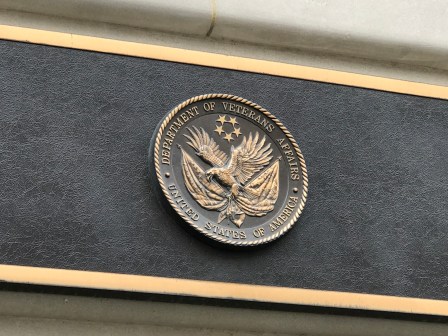GAO chief: DATA Act has a ‘long way to go’
The head of the Government Accountability Office expressed cautious optimism that the federal government could establish governmentwide financial data standards by May 2015.
“I think that Treasury and OMB and the agencies are off to a good start,” U.S. Comptroller General Gene Dodaro told lawmakers during a House Committee on Oversight and Government Reform hearing Wednesday. He added, “They’re laying the initial framework. There is a long way to go before they’re going to have the standards in place.”
Dodaro was referring to a deadline set by the DATA Act, an attempt to make U.S. federal government’s financial expenditures more transparent. Passed May 9, the legislation requires the White House Office of Management and Budget to work with the Treasury Department to develop the standards by May 2015.
By 2018 under the law, federal agencies must disclose their direct expenditures in a machine-readable format and link federal contract, loan and grant spending information to agency programs. The information would go on USASpending.gov.
Agencies already are supposed to report their spending on USASpending.gov, though Dodaro pointed to previous
GAO research released year that found agencies neglected to report 342 assistance award programs totaling approximately $619 billion. That’s out of the $3.5 trillion that the government spends each year.
During the hearing, Committee Chairman Darrell Issa, R-Calif., and other House lawmakers pressed witnesses on the importance of adhering to the schedule set by the DATA Act.
David Mader, controller of the Office of Federal Financial Management at the White House Office of Management and Budget, said his agency and Treasury have taken several steps to see the DATA Act through. The two agencies have established of a governmentwide governance structure to guide the effort, developed a DATA Act implementation plan and worked to improve USASpending.gov’s interface, according to Mader’s written testimony.
“We have chartered a very aggressive path toward implementation,” he said.
In the meantime, Dodaro told lawmakers his agency would track every stage of implication and issue a report in 2015 on the program’s status.
“I want to make sure data standards are complete,” he said.
At the end of the hearing, Del. Eleanor Holmes Norton of the District of Columbia warned that the act should be enacted slowly, pointing to the problems with the initial roll out of Healthcare.gov.
“Surely, seeing what it took to get one agency to go online … should caution us to do this very slowly with pilots in the agency first,” she said.
Though, Issa noted that there have been several efforts to help agencies find interoperable systems. “Isn’t the DATA Act a simply roadmap to a transition that has been ordered by people who predate my 14 years in Congress?” Issa asked the panel of witnesses.
“Yes, definitely,” Dodaro said, though he said that there are new features within the act, including provisions for machine-readable data. He added, “Without the legislative underpinning and consistent oversight, this won’t happen.”
Issa said that in the long term, the federal government should invest in making all data – not just financial – available in machine-ready formats.
“The quality of the data that goes in [the National Archives] sadly is for a long time to come going to be paper or digital equivalents of paper,” like PDFs, Issa said.
He added, “We have to also invest in leaving a legacy of deep information that future generations can easily search. Hopefully we’ll use this as a base and continue across the spectrum.”






